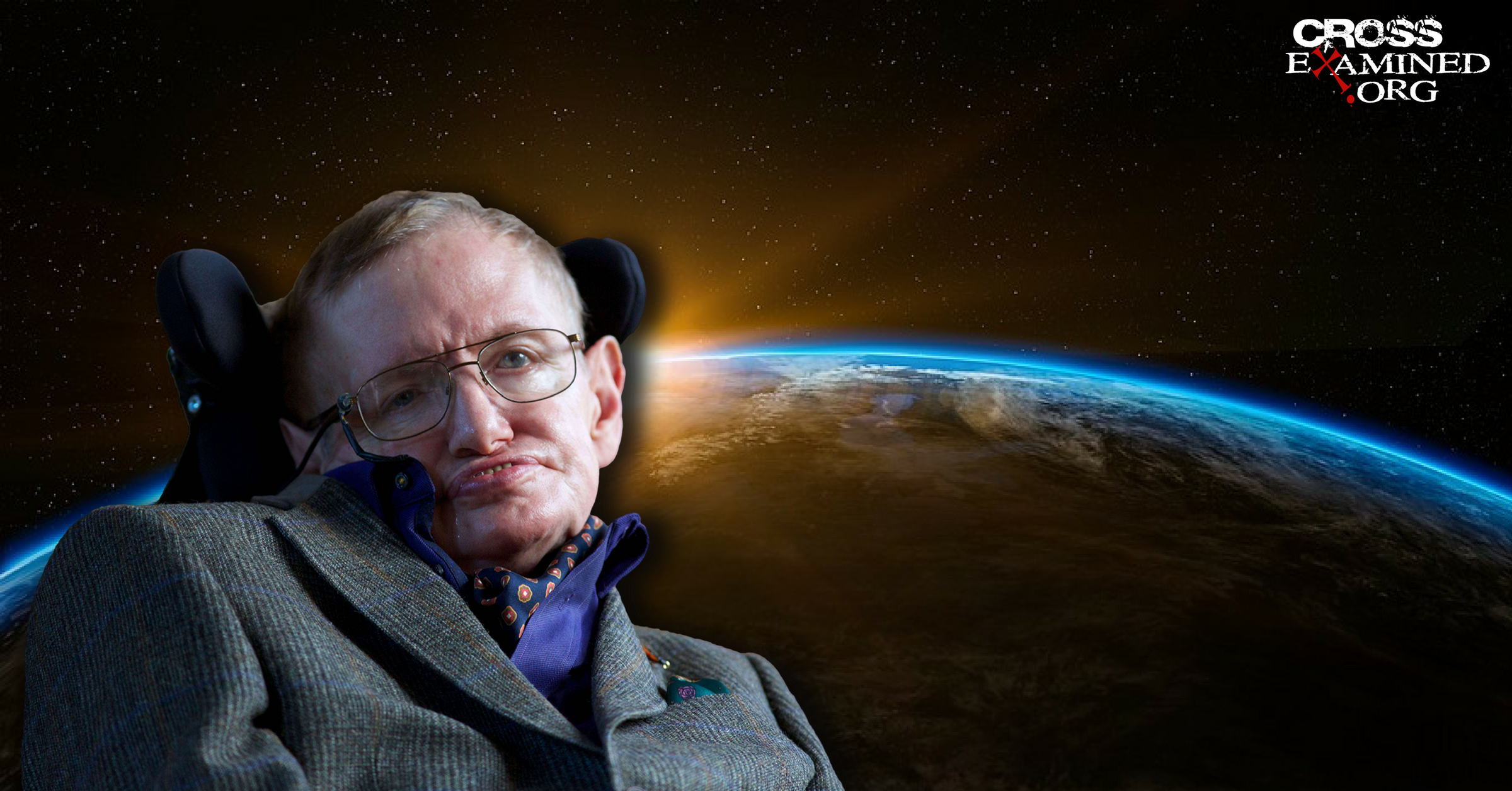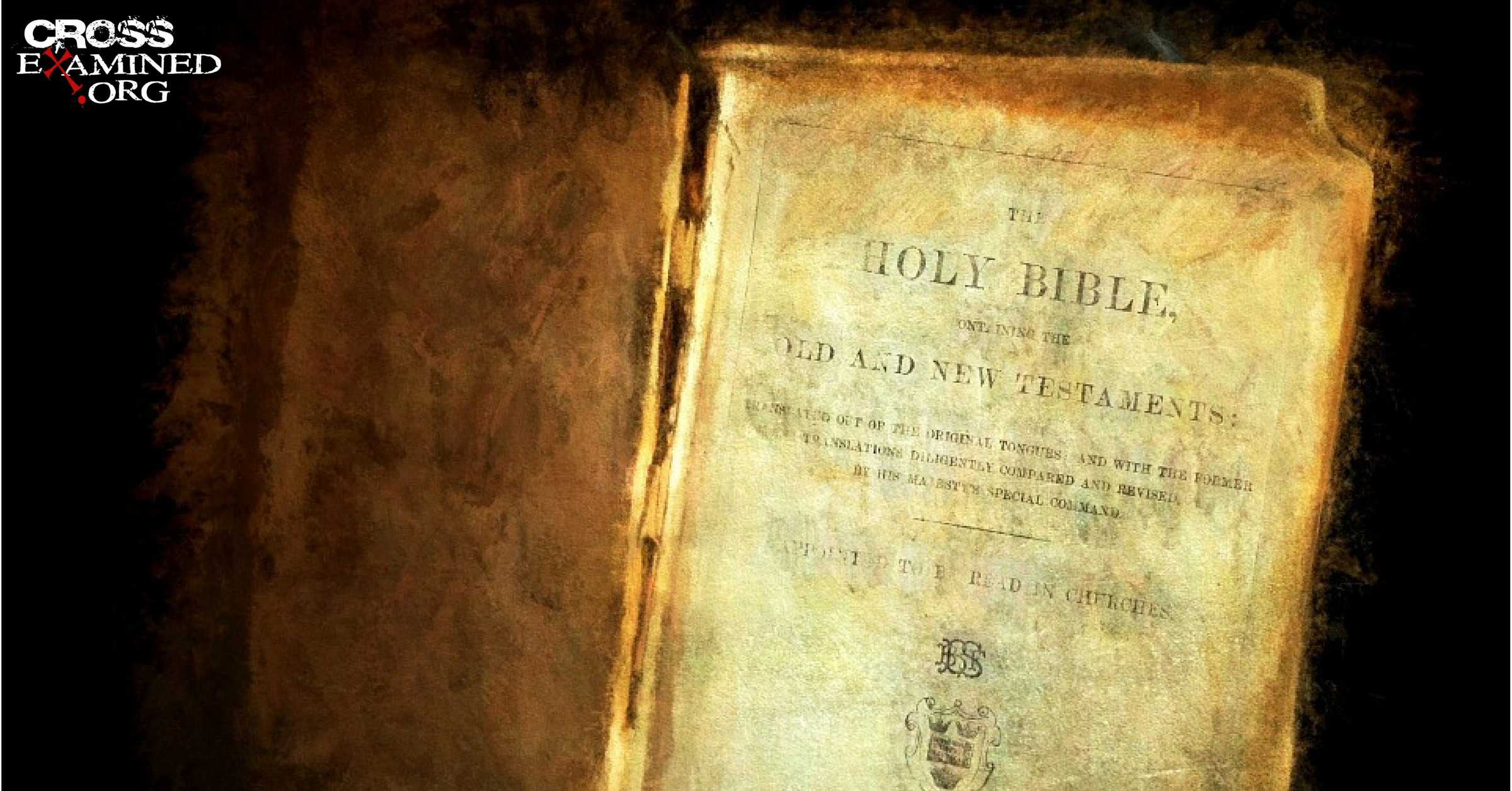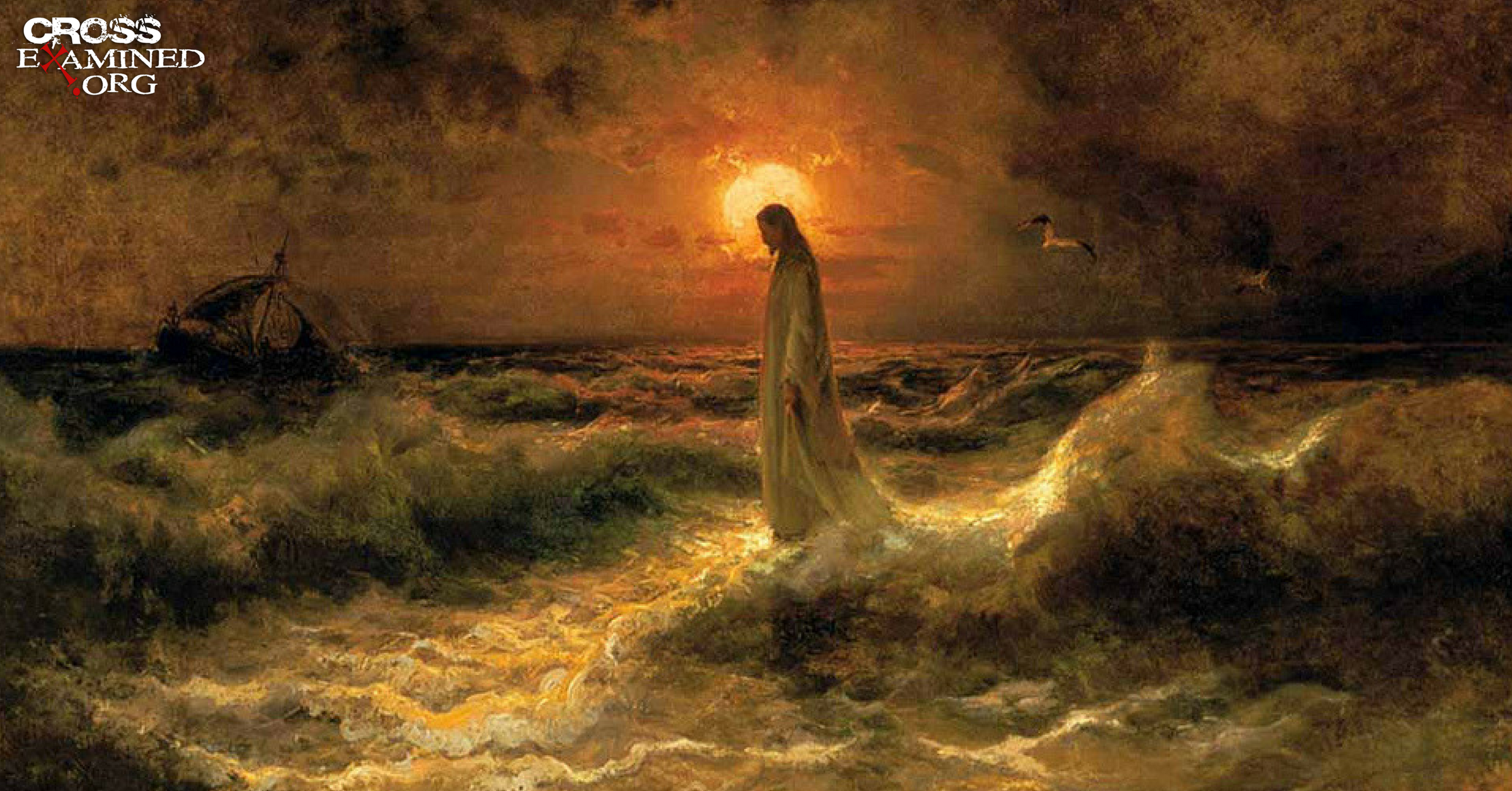By Aaron Brake
“The evidence for the resurrection is better than for claimed miracles in any other religion. It’s outstandingly different in quality and quantity.”
—Antony Flew—
INTRODUCTION
The truth of Christianity stands or falls on the bodily resurrection of Jesus Christ. As Paul himself said, “If Christ has not been raised, our preaching is useless and so is your faith.”[1] Here the Apostle provides an objective criterion by which to judge the legitimacy of the Christian worldview. Show that Christ has not been raised from the dead and you will have successfully proven Christianity false. Conversely, if Jesus did rise from the dead, then His life and teachings are vindicated. The Christian faith, as it turns out, is falsifiable. It is the only religion which bases its faith on an empirically verifiable event.[2]
Christ Himself testified that His resurrection is the sign given to the world as evidence for His extraordinary claims: “A wicked and adulterous generation asks for a miraculous sign! But none will be given it except the sign of the prophet Jonah. For as Jonah was three days and three nights in the belly of a huge fish, so the Son of Man will be three days and three nights in the heart of the earth.”[3] Furthermore, the resurrection was the central message proclaimed by the early church as most clearly demonstrated in the book of Acts.[4] Therefore, it is entirely appropriate that an objective examination of Christianity focus on the most pivotal historical event of the faith: the Resurrection.
THE MINIMAL FACTS APPROACH
The approach I will take in this paper is commonly referred to as the “minimal facts approach.” This method “considers only those data that are so strongly attested historically that they are granted by nearly every scholar who studies the subject, even the rather skeptical ones.”[5] It should be noted this approach does not assume the inerrancy or divine inspiration of any New Testament document. Rather it merely holds these writings to be historical documents penned during the first century AD.[6]
Though as many as 12 minimal facts surrounding the death and resurrection of Christ may be examined,[7] the brevity of this paper limits our examination to four: the death of Jesus by crucifixion, the empty tomb,[8] the post-resurrection appearances, and the origin of the Christian faith. I contend that the best explanation for these minimal facts is that Jesus was raised bodily from the grave.
Finally, if these facts “can be established and no plausible natural explanation can account for them as well as the resurrection hypothesis, then one is justified in inferring Jesus’ resurrection as the most plausible explanation of the data.”[9]
A MATTER OF HISTORY
Before looking at the facts surrounding the death and resurrection of Jesus Christ, it is important to identify a set of objective criteria by which the validity of historical events may be judged. In other words, what criteria may be used to establish the occurrence of an event with reasonable historical certainty? New Testament scholars Gary Habermas and Michael Licona list the following five criteria noting that “a historian who is able to apply one or more of the following principles to a text can conclude with much greater confidence whether a certain event occurred.”[10]
- Historical claims are strong when supported by multiple, independent sources.
- Historical claims which are also attested to by enemies are more likely to be authentic since enemies are unsympathetic, and often hostile, witnesses.
- Historical claims which include embarrassing admissions reflect honest reporting rather than creative storytelling.
- Historical claims are strong when supported by eyewitness testimony.
- Historical claims which are supported by early testimony are more reliable and less likely to be the result of legendary development.[11]
Therefore, when inquiring into a historical event “the historian combs through the data, considers all the possibilities, and seeks to determine which scenario best explains the data.”[12]
Some skeptics argue that the resurrection of Jesus cannot be investigated historically. But this is mistaken. The facts surrounding the resurrection are of a historical nature and available for anyone to examine. Consequently, “the meaning of the resurrection is a theological matter, but the fact of the resurrection is a historical matter.”[13] Thus either the bodily resurrection of Jesus actually occurred in history, or it did not. Either the resurrection is the best explanation for the known historical data, or it is not. Regardless, what we cannot do is simply dismiss it as “supernatural” or “miraculous” in an attempt to remove it from the pool of live options a priori. Moreover, we need to be careful not to confuse “the evidence for the resurrection with the best explanation of the evidence. The resurrection of Jesus is a miraculous explanation of the evidence. But the evidence itself is not miraculous. None of these four facts is any way supernatural or inaccessible to the historian.”[14] So although the resurrection may be classified as a “miraculous event,” it is a historical event nonetheless and should be investigated as such. John Warwick Montgomery provides helpful insight:
The only way we can know whether an event can occur is to see whether, in fact, it has occurred. The problem of “miracles,” then, must be solved in the realm of historical investigation, not in the realm of philosophical speculation. And note that a historian, in facing an alleged “miracle,” is really facing nothing new. All historical events are unique, and the test of their factual character can be only the accepted documentary approach that we have followed here. No historian has the right to a closed system of natural causation….”[15]
Therefore, whether or not Jesus rose from the dead is really quite straightforward: “If Jesus was dead at point A, and alive again at point B, then resurrection has occurred: res ipsa loquitur.”[16]
FACT #1—THE DEATH OF JESUS BY CRUCIFIXION
Perhaps no other fact surrounding the life of the historical Jesus is better attested to than His death by crucifixion. Not only is the crucifixion account included in every gospel narrative[17] but it is also confirmed by several non-Christian sources. These include the Jewish historian Josephus, the Roman historian Tacitus, the Greek satirist Lucian of Samosata, as well as the Jewish Talmud.[18] Josephus tells us that “Pilate, at the suggestion of the principal men among us…condemned him to the cross…”[19] From a perspective of historiography, Jesus’ crucifixion meets the historical criteria of multiple, independent and early eyewitness sources including enemy attestation. John Dominic Crossan, non-Christian critical scholar and co-founder of the Jesus Seminar, states, “That he was crucified is as sure as anything historical can ever be.”[20]
Objection #1: Jesus Didn’t Really Die (The Swoon Theory)
Some skeptics argue that Jesus may have been crucified, but He did not actually die. Instead, He lost consciousness (swooned) and merely appeared to be dead only to later be revived in the cool, damp tomb in which He was laid. After reviving He made His way out of the tomb and presented Himself to His disciples as the “resurrected” Messiah. Thus the Christian religion begins. This theory is problematic for several reasons.
First, the Swoon Theory does not take seriously what we know about the horrendous scourging and torture associated with crucifixion. As an expert team from the Journal of the American Medical Association concludes, “Accordingly, interpretations based on the assumption that Jesus did not die on the cross appear to be at odds with modern medical knowledge.”[21]
Second, Jesus faking His own resurrection goes against everything we know about His ethical ministry.
Third, a half-dead, half-resurrected “messiah” could hardly serve as the foundation for the disciples’ belief in the resurrection. German theologian David Friedrich Strauss explains:
It is impossible that a being who had stolen half-dead out of the sepulcher, who crept about weak and ill, wanting medical treatment, who required bandaging, strengthening and indulgence, and who still at last yielded to his sufferings, could have given to the disciples the impression that he was a Conqueror of death and the grave, the Prince of Life, an impression which lay at the bottom of their future ministry. Such a resuscitation could only have weakened the impression which He had made upon them in life and death, at the most could only have given it an elegiac voice, but could by no possibility have changed their sorrow into enthusiasm, have elevated their reverence into worship.[22]
Fourth, this theory is anachronistic in postulating that the disciples, upon seeing Jesus in his half-comatose state, would be led to conclude that He had been raised from the dead within history, in opposition to the Jewish belief in one final resurrection at the end of time. On the contrary, seeing Him again would lead them to conclude He didn’t die![23]
Fifth, Roman soldiers were professional executioners, and everything we know about the torture and crucifixion of Jesus confirms His death, making this theory physically impossible.
Sixth, no early evidence or testimony exists claiming Jesus was merely wounded.
Finally, this theory cannot account for the conversion of skeptics like Paul who also testified to having seen the risen Lord and willing suffered and died for his belief in the resurrection.
FACT #2—THE EMPTY TOMB
Something happened to the body of Jesus. Of this, we can be sure. Not only was Jesus publicly executed in Jerusalem but “His post-mortem appearances and empty tomb were first publicly proclaimed there.”[24] This would have been impossible with a decaying corpse still in the tomb. “It would have been wholly un-Jewish,” notes William Lane Craig, “not to say foolish, to believe that a man was raised from the dead when his body was still in the grave.”[25] The Jewish authorities had plenty of motivation to produce a body and silence these men who “turned the world upside down,”[26] effectively ending the Christian religion for good. But no one could. The only early opposing theory recorded by the enemies of Christianity is that the disciples stole the body.[27] Ironically, this presupposes the empty tomb.
In addition, all four gospel narratives attest to the burial of Jesus by Joseph of Arimathea and place women as the primary witnesses to the empty tomb.[28] Both of these are highly unlikely to be Christian inventions.
First, with regard to Joseph of Arimathea, Biblical scholar James G. D. Dunn explains that he
is a very plausible historical character: he is attested in all four Gospels… and in the Gospel of Peter…; when the tendency of the tradition was to shift blame to the Jewish council, the creation ex nihilo of a sympathizer from among their number would be surprising; and ‘Arimathea, ‘a town very difficult to identify and reminiscent of no scriptural symbolism, makes a thesis of invention even more implausible.’[29]
Atheist Jeffery Lowder agrees that “the burial of Jesus by Joseph of Arimathea has a high final probability.”[30]
Second, just as unlikely to be invented is the report of women followers discovering the empty tomb, especially when considering the low social status of women in both Jewish and Roman cultures and their inability to testify as for legal witnesses.[31] If the empty tomb account were a fabricated story intended to persuade skeptics it would have been better served by including male disciples as the primary witnesses. In other words, both the burial and empty tomb accounts demonstrate a ring of authenticity which lends credibility to the gospel narratives.
As with the crucifixion, the account of the empty tomb meets the historical criteria of multiple, independent and early eyewitness sources,[32] including implicit enemy attestation as well as the principle of embarrassment. In addition, the reports of the burial and empty tomb are simple and lack theological or legendary development.
Finally, there is no competing burial story in existence. Historian and skeptic Michael Grant concede that “the historian… cannot justifiably deny the empty tomb” since applied historical criteria show “the evidence is firm and plausible enough to necessitate the conclusion that the tomb was indeed found empty.”[33]
Objection #2: The Disciples Stole the Body (The Fraud or Conspiracy Theory)
As mentioned above, the earliest recorded polemic against the empty tomb is the charge by Jewish authorities that the disciples stole the body. This is commonly referred to as the Fraud or Conspiracy Theory. This scenario posits that Jesus’ followers stole the body away unbeknownst to anyone and lied about the resurrection appearances, pulling off what has thus far been the greatest hoax in human history. There are several problems with this view.
First, this theory does not explain well the simplicity of the resurrection narratives nor why the disciples would invent women as the primary witnesses to the empty tomb.[34] This is hardly the way one gets a conspiracy theory off the ground.
Second, this also doesn’t explain why the disciples would perpetuate a story that they stole the body (Matt. 28:11-15) if, in fact, they stole the body! Propagating an explanation which incriminates oneself is again at odds with a conspiracy theory.
Third, as will be discussed below, this theory does not account for the fact that the disciples of Jesus had genuine experiences in which they believed they saw the risen Christ. So convinced were these men that their lives were transformed into committed followers willing to suffer and die for their belief. Liars make poor martyrs.
Fourth, this theory runs opposite to everything we know about the disciples. As J. N. D. Anderson states, “This would run totally contrary to all we know of them: their ethical teaching, the quality of their lives, their steadfastness in suffering and persecution. Nor would it begin to explain their dramatic transformation from dejected and dispirited escapists into witnesses whom no opposition could muzzle.”[35]
Fifth, this theory is completely anachronistic. There was no expectation by first century Jews of a suffering-servant Messiah who would be shamefully executed by Gentiles as a criminal only to rise again bodily before the final resurrection at the end of time: “As Wright nicely puts it, if your favorite Messiah got himself crucified, then you either went home or else you got yourself a new Messiah. But the idea of stealing Jesus’ corpse and saying that God had raised him from the dead is hardly one that would have entered the minds of the disciples.”[36]
Finally, this theory cannot account for the conversion of skeptics like Paul who also testified to having seen the risen Lord and willing suffered and died for his belief in the resurrection.
FACT #3—THE POST-RESURRECTION APPEARANCES
In 1 Corinthians 15:3-8 Paul recounts what biblical scholars recognize as an early Christian creed dating to within a few years of the crucifixion. Notice the creedal nature and repetitive structure of this passage when broken down in the following form:
For I delivered to you as of first importance what I also received, in which also you stand,
that Christ died for our sins
according to the Scriptures,
and
that He was buried,
and
that He was raised on the third day
according to the Scriptures,
and
that He appeared to Cephas,
then to the twelve.
After
that He appeared to more than five hundred brethren at one time,
most of whom remain until now,
but some have fallen asleep;
then He appeared to James,
then to all the apostles;
and last of all, as to one untimely born,
He appeared to me also.[37]
Included in this creed are three of our minimal facts: the death of Jesus, the empty tomb, and the post-resurrection appearances. Furthermore, our fourth minimal fact (the origin of Christianity) is easily explained given the first thee facts. Paul not only mentions the multiple post-resurrection appearances but includes himself as having seen the risen Lord. Several indicators in the text confirm this to be an early Christian creed.
First, as shown above, the passage uses stylized wording and parallel structure common to creedal formulas.
Second, the words “delivered” and “received” are technical terms indicating a rabbinic heritage is in view.
Third, the phrases “He was raised,” “third day,” and “the twelve” are unusual Pauline terms making this unlikely to have originated with Paul himself.
Fourth, the Aramaic term “Cephas” is used for Peter indicating an extremely early origin.[38] New Testament scholar and skeptic Gerd Lüdemann assigns this passage a very early date stating, “the elements in the tradition are to be dated to the first two years after the crucifixion of Jesus…not later than three years…the formation of the appearance traditions mentioned in 1 Cor. 15:3-8 falls into the time between 30 and 33 C.E.”[39]
The early date of this creed rules out the possibility of myth or legendary development as a plausible explanation and demonstrates that the disciples began proclaiming Jesus’ death, resurrection, and post-resurrection appearances very early. Christian philosopher and theologian J. P. Moreland elaborates:
There was simply not enough time for a great deal of myth and legend to accrue and distort the historical facts in any significant way. In this regard, A. N. Sherwin-White, a scholar of ancient Roman and Greek history at Oxford, has studied the rate at which legend accumulated in the ancient world, using the writings of Herodotus as a test case. He argues that even a span of two generations is not sufficient for a legend to wipe out a solid core of historical facts. The picture of Jesus in the New Testament was established well within that length of time.[40]
Again Lüdemann acknowledges, “It may be taken as historically certain that Peter and the disciples had experiences after Jesus’ death in which Jesus appeared to them as the risen Christ.”[41] There is no dispute among scholars that the disciples experienced something.
But there’s more. The disciples not only proclaimed that Jesus was raised, but they sincerely believed the resurrection occurred as demonstrated by their transformed lives. Eleven early sources testify to the willingness of the apostles to suffer and die for their belief in the resurrection.[42] For example, we know extra-Biblically that Jesus’ brother James was stoned to death by the Sanhedrin and that the apostle Paul was beheaded in Rome under Nero.[43] Many people will die for what they believe to be true but no one willingly suffers and dies for what they know to be false. Again, liars make poor martyrs. This important point should not be confused by an appeal to modern-day martyrs who willingly die for their religious beliefs. Making this comparison is a false analogy: “Modern martyrs act solely out of their trust in beliefs that others have taught them. The apostles died for holding to their own testimony that they had personally seen the risen Jesus. Contemporary martyrs die for what they believe to be true. The disciples of Jesus died for what they knew to be either true or false.”[44]
As with the crucifixion and empty tomb, the post-resurrection appearances meet the historical criteria of multiple, independent and early eyewitness sources, as well as the testimony of a former enemy of Christianity: Saul of Tarsus. Nine early and independent sources testify to the disciples’ proclamation that Jesus rose from the dead and appeared to them.[45] To list just one example of this, the appearance “to the twelve” mentioned by Paul above is also attested to in Luke 24:36-42 and John 20:19-20. “The evidence,” says William Lane Craig, “makes it certain that on separate occasions different individuals and groups had experiences of seeing Jesus alive from the dead. This conclusion is virtually indisputable—and therefore undisputed.[46]
Objection #3: The Disciples Experienced Hallucinations (The Hallucination Theory)
The most popular theory offered by skeptics to explain away the post-resurrection appearances is that the disciples experienced hallucinations. This is the position taken by Gerd Lüdemann (quoted above) among others. However, appealing to hallucinations as an explanation simply won’t work for the following reasons.
First, the testimony of Paul along with the Gospel writers is that the appearances of Jesus were physical, bodily appearances.[47] In fact, this is the unanimous consent of the Gospel narratives. This is an important point because if “none of the appearances was originally a physical, bodily appearance, then it is very strange that we have a completely unanimous testimony in the Gospels that all of them were physical, with no trace of the supposed original, non-physical appearances.”[48]
Second, hallucinations are private experiences (as opposed to group experiences). A group of people “may be in the frame of mind to hallucinate, but each experiences hallucinations on an individual basis. Nor will they experience the same hallucination. Hallucinations are like dreams in this way.”[49] Therefore, hallucinations cannot explain the group appearances attested to in 1 Cor. 15, the Gospel narratives, and the book of Acts.[50]
Third, ironically, the Hallucination Theory cannot explain the origin of the disciples’ belief in Jesus’ resurrection! Just like in today’s modern world, “for someone in the ancient world, visions of the deceased are not evidencing that the person is alive, but evidence that he is dead!”[51] This is a crucial argument to grasp:
Hallucinations, as projections of the mind, can contain nothing new. Therefore, given the current Jewish beliefs about life after death, the disciples, were they to project hallucinations of Jesus, would have seen Jesus in heaven or in Abraham’s bosom, where the souls of the righteous dead were believed to abide until the resurrection. And such visions would not have caused belief in Jesus’ resurrection.[52]
In other words, a hallucination of the resurrected Jesus presupposes the proper frame of mind which the disciples simply did not possess.
Finally, hallucinations cannot explain such facts as the empty tomb, the conversions of skeptics like Paul, nor the multiple and varied resurrection appearances which defy a purely psychological, naturalistic explanation.[53] “To be perfectly candid,” concludes Craig, “the only grounds for denying the physical, corporeal nature of the postmortem appearances of Jesus is philosophical, not historical.”[54]
FACT #4—THE ORIGIN OF THE CHRISTIAN FAITH
No scholar denies the fact that the Christian religion exploded out of the first century Israel. Within one generation of the death of Christ, this movement is known as “the Way” had spread to Europe, Africa, and Asia. Christianity is an effect that needs an adequate cause and explanation. Where exactly did the Christian faith come from and what best explains its origin?
The most obvious answer to this question is that the disciples truly saw the resurrected Christ. Only an event of this magnitude could turn scared, scattered, and skeptical disciples, with no prior concept and expectation of a crucified and risen Messiah, into courageous proclaimers of the gospel willing to suffer and die for their belief that Jesus rose bodily from the grave. This is what Peter boldly declared: “This Jesus God raised up again, to which we are all witnesses… Therefore let all the house of Israel know for certain that God has made Him both Lord and Christ—this Jesus whom you crucified.”[55] The origin of the Christian faith is best explained by the disciples’ sincere belief that God raised Jesus from the dead.
Anyone who denies the resurrection itself as the explanation for the origin of Christianity must posit some other explanation. Only three possibilities seem to exist. If the resurrection did not occur, then Christianity was either the result of Christian, Jewish, or pagan influences.[56] Obviously, the disciples could not succumb to Christian influences since Christianity was not yet in existence. But just as unlikely is the idea that the disciples’ belief in the resurrection originated from Jewish influences. The Jewish conception of the resurrection was one final, general resurrection of all mankind (or all the righteous) occurring after the end of the world. Nowhere in Jewish thought do we find the idea of a single individual resurrecting within history never to die again.[57]
Objection #4: Christianity Borrowed From Pagan Religions (The Copycat Theory)
Perhaps then Christianity finds its origin in paganism. Popular internet movies such as Zeitgeist have made ubiquitous the belief that there really is nothing unique about the Christian Savior. Jesus is simply a conglomeration of past dying and rising “messiahs” repackaged for a first-century audience whose zealousness eventually grew into the Christian religion we know today. Despite the pervasiveness of this belief, it suffers from numerous problems.
First, pagan mythology is the wrong interpretive context considering that “Jesus and his disciples were first-century Palestinian Jews, and it is against that background that they must be understood.”[58]
Second, the Jews were familiar with seasonal deities (Ezek. 37:1-14) and found them detestable, making it extremely improbable that they would borrow mythology from them. This is why no trace of pagan cults celebrating dying and rising gods can be found in first-century Palestine.[59]
Third, the earliest account of a dying and rising god that somewhat parallels Jesus’ resurrection appears at least 100 years later. The historical evidence for these myths is non-existent, and the accounts are easily explained by naturalistic theories.[60]
Fourth, the Copycat Theory begs the question. It assumes the accounts of Jesus’ resurrection are false (the very thing it intends to prove) and then attempts to explain how these accounts originated by appealing to supposed parallels within pagan mythology. But first, it must be shown that the accounts of Jesus’ resurrection are false! In other words, even if it could be shown that parallels exist, it does not follow that the resurrection of Jesus is not a historical event. The evidence for Jesus’ resurrection must be judged on its own merit because “the claims of resurrections in other religions do not explain the evidence that exists for Jesus’ resurrection.”[61]
Finally, to put to rest this outdated and unsubstantiated theory, the late Dr. Ronald Nash summarizes seven important points that completely undermine the idea that Christianity derived its doctrine from the pagan mystery religions:
- Arguments offered to “prove” a Christian dependence on the mysteries illustrates the logical fallacy of false cause… Coincidence does not prove the causal connection. Nor does similarity prove dependence.
- Many alleged similarities between Christianity and the mysteries are either greatly exaggerated or fabricated. Scholars often describe pagan rituals in a language they borrow from Christianity…
- The chronology is all wrong. Almost all of our sources of information about the pagan religions alleged to have influenced early Christianity are dated very late. We frequently find writers quoting from documents written 300 years later than Paul in efforts to produce ideas that allegedly influenced Paul. We must reject the assumption that just because a cult had a certain belief or practice in the third or fourth century after Christ, it, therefore, had the same belief or practice in the first century.
- Paul would never have consciously borrowed from the pagan religions…
- Early Christianity was an exclusivist faith…
- Unlike the mysteries, the religion of Paul was grounded on events that actually happened in history…
- What few parallels may still remain to reflect a Christian influence on the pagan systems…[62]
Nash offers this final word regarding the copycat theory: “Liberal efforts to undermine the uniqueness of the Christian revelation via claims of a pagan religious influence collapse quickly once a full account of the information is available. It is clear that the liberal arguments exhibit astoundingly bad scholarship. Indeed, this conclusion may be too generous.”[63] Therefore, it is safe to conclude that “the birth and the rapid rise of the Christian Church…remain an unsolved enigma for any historian who refuses to take seriously the only explanation offered by the Church itself.”[64]
CONCLUSION
If Jesus was dead at point A, and alive at point B, we have a resurrection. The bodily resurrection of Jesus Christ is the best explanation for the known historical data: His death by crucifixion, the empty tomb, the post-resurrection appearances, and the origin of the Christian faith. Furthermore, Jesus’ resurrection fits the context of his life, vindicating His teachings and radical claim to be the unique, divine Son of God. Paul says that Christ “was declared with power to be the Son of God by his resurrection from the dead.”[65] Naturalistic explanations (swoon theory, legendary development, fraud, hallucinations) fail to account for all the relevant data and in some cases (copycat theories) are outright false and ahistorical. Conversely, the Resurrection Hypothesis accounts for all of the known facts, has greater explanatory scope and power, is more plausible, and less ad hoc.[66] Only if one is guided by a prior commitment to philosophical naturalism will the conclusion “God raised Jesus from the dead”seems unjustified.
Notas
[1] 1 Cor. 15:14, NIV.
[2] Clay Jones, Lecture Notes: In Defense of the Resurrection (Biola University: School of Professional Studies), Spring 2010).
[3] Matt. 12:39-40.
[4] Acts 1:21-22; 2:22, 24, 32; 10:39-41, 43a; 13:30-31, 34a, 37; 17:2-3, 30-31; 24:21; 26:22-23.
[5] Gary R. Habermas and Michael R. Licona, The Case for the Resurrection of Jesus (Grand Rapids: Kregel, 2004), 44.
[6] For more information on the historical reliability of the New Testament see Craig Blomberg, The Historical Reliability of the Gospels, 2nd ed. (Downers Grove: IVP Academic, 2007), and F.F. Bruce, The New Testament Documents: Are They Reliable?, 6th ed. (Grand Rapids: Eerdmans, 1981).
[7] See Gary Habermas, The Historical Jesus: Ancient Evidence for the Life of Christ, Rev. ed. (Joplin: College Press, 1996), 158-167.
[8] Habermas and Licona note that “roughly 75 percent of scholars on the subject accept the empty tomb as a historical fact” (The Case for the Resurrection of Jesus, 70).
[9] William Lane Craig, Reasonable Faith: Christian Truth and Apologetics, 3rd ed. (Wheaton: Crossway, 2008), 361.
[10] Habermas and Licona, The Case for the Resurrection of Jesus, 36.
[11] Ibid., 36-40.
[12] Ibid., 32.
[13] Wilbur Smith, Therefore Stand (Grand Rapids: Baker Book House, 1945), 386, as quoted in Josh McDowell, The New Evidence That Demands a Verdict (Nashville: Thomas Nelson, 1999), 211.
[14] William Lane Craig and Bart D. Ehrman, Is There Historical Evidence for the Resurrection of Jesus?: A Debate between William Lane Craig and Bart D. Ehrman (Worcester: College of the Holy Cross, March 28, 2006), http://www.reasonablefaith.org/site/DocServer/resurrection-debate-transcript.pdf?docID=621 (accessed May 2, 2010).
[15] John Warwick Montgomery, History, Law and Christianity (Edmonton: Canadian Institute for Law, Theology, and Public Policy Inc., 2002), 61.
[16] John Warwick Montgomery, “The Jury Returns: A Juridical Defense of Christianity,” in Evidence for Faith: Deciding the God Question, ed. John Warwick Montgomery (Probe Books, 1991), http://www.mtio.com/articles/bissart1.htm (accessed May 1, 2010).
[17] See Matthew 27:35, Mark 15:24, Luke 23:33, and John 19:18.
[18] Josephus Jewish Antiquities 18.3.3; Tacitus Annals 15:44; Lucian of Samosata The Death of Peregrine 11-13; Talmud Sanhedrin 43a.
[19] Flavius Josephus, The New Complete Works of Josephus, Rev. ed., trans. William Whiston (Grand Rapids: Kregel, 1999), 590.
[20] John Dominic Crossan, Jesus: A Revolutionary Biography (San Francisco: HarperOne, 2009), 163.
[21] William D. Edwards, Wesley J. Gabel, and Floyd E. Hosmer, “On the Physical Death of Jesus Christ,” Journal of the American Medical Association 255, no. 11 (March 21, 1986): 1463.
[22] David Friedrich Strauss, The Life of Jesus for the People (London: Williams and Norgate, 1879), 1:412, as quoted in Josh McDowell, More Than a Carpenter (Wheaton: Tyndale House, 1977), 91.
[23] Craig, Reasonable Faith, 373.
[24] Habermas and Licona, The Case for the Resurrection of Jesus, 70. See also Acts 2 and Tacitus Annals 15:44.
[25] Craig, Reasonable Faith, 361.
[26] Acts 17:6, NKJV.
[27] See Matt. 28:12-13; Justin Martyr Trypho 108; Tertullian De Spectaculis 30.
[28] See Matt. 27:57-61, 28:1-8; Mark 15:43-16:7; Luke 23:50-24:12; John 19:38- 20:18.
[29] James D. G. Dunn, Jesus Remembered (Grand Rapids: Eerdmans, 2003), 782.
[30] Jeffrey Jay Lowder, “Historical Evidence and the Empty Tomb Story: A Reply to William Lane Craig,” in The Empty Tomb: Jesus Beyond the Grave, ed. Robert M. Price and Jeffrey Jay Lowder (Amherst: Prometheus, 2005), 266.
[31] Craig, Reasonable Faith, 367.
[32] For example, 1 Cor. 15:3-5, Acts 13:28-31, and Mark 15:37-16:7
[33] Michael Grant, Jesus: An Historian’s Review of the Gospels (New York: Scribners, 1976), 176.
[34] Craig, Reasonable Faith, 371.
[35] J. N. D. Anderson, Christianity: The Witness of History (London: Tyndale Press, 1969), 92, as quoted in Josh McDowell, More Than a Carpenter (Wheaton: Tyndale House, 1977), 92.
[36] Craig (citing N.T. Wright), Reasonable Faith, 372.
[37] 1 Cor. 15:3-8, NASB.
[38] Jones, In Defense of the Resurrection, Spring 2010.
[39] Gerd Lüdemann, The Resurrection of Jesus: History, Experience, Theology, trans. John Bowden (Minneapolis: Fortress, 1994), 38.
[40] J. P. Moreland, Scaling the Secular City: A Defense of Christianity (Grand Rapids: Baker, 1987), 156.
[41] Gerd Lüdemann, What Really Happened to Jesus?: A Historical Approach to the Resurrection, trans. John Bowden (Louisville: Westminster John Knox, 1995), 80. Lüdemann appeals to hallucinations as an explanation.
[42] Luke, Paul, Josephus, Clement of Rome, Clement of Alexandria, Polycarp, Ignatius, Dionysius of Corinth, Tertullian, Origen, and Hegesippus. See Habermas and Licona, The Case for the Resurrection of Jesus, 56-62.
[43] Josephus Jewish Antiquities 20.9.1; Tertullian Scorpiace 15.
[44] Habermas and Licona, The Case for the Resurrection of Jesus, 59.
[45] Paul, Creeds (1 Cor. 15:3-8), Sermon Summaries (Acts 2), Matthew, Mark, Luke, John, Clement of Rome, Polycarp. See Habermas and Licona, The Case for the Resurrection of Jesus, 51-56.
[46] Craig, Reasonable Faith, 381.
[47] 1 Cor. 15:42-44; Matt. 28:5-6, 9; Mark 16:6; Luke 24:5-6, 22-24, 30, 39-43; John 20:1-20, 27, 21:13.
[48] Craig, Reasonable Faith, 383.
[49] Habermas and Licona, The Case for the Resurrection of Jesus, 106.
[50] Matt. 28:9, 16-20; Mark 16:7; Luke 24:33-36; John 20:19-30; 21:1-22; Acts 1:3-9.
[51] Craig, Reasonable Faith, 385.
[52] Ibid., 394.
[53] See The Case for the Resurrection of Jesus, 104-119, and Reasonable Faith, 384-387, for more on the hallucination theory.
[54] Craig, Reasonable Faith, 384.
[55] Acts 2:32, 36, NASB.
[56] Craig, Reasonable Faith, 390.
[57] Ibid., 392.
[58] Craig, Reasonable Faith, 391.
[59] Ibid.
[60] Habermas and Licona, The Case for the Resurrection of Jesus, 90.
[61] Ibid., 91.
[62] Ronald Nash, “Was the New Testament Influenced by Pagan Religions?” Christian Research Journal (Winter 1994), http://www.iclnet.org/pub/resources/text/cri/cri-jrnl/web/crj0169a.html(accessed May 2, 2010).
[63] Ibid.
[64] C. F. D. Moule, The Phenomenon of the New Testament, Studies in Biblical Theology 2/1 (London: SCM, 1967), 13, as quoted in Craig, Reasonable Faith, 394.
[65] Rom. 1:4.
[66] Craig, Reasonable Faith, 397-399.
Original Blog Source: http://bit.ly/2t4i2c9










